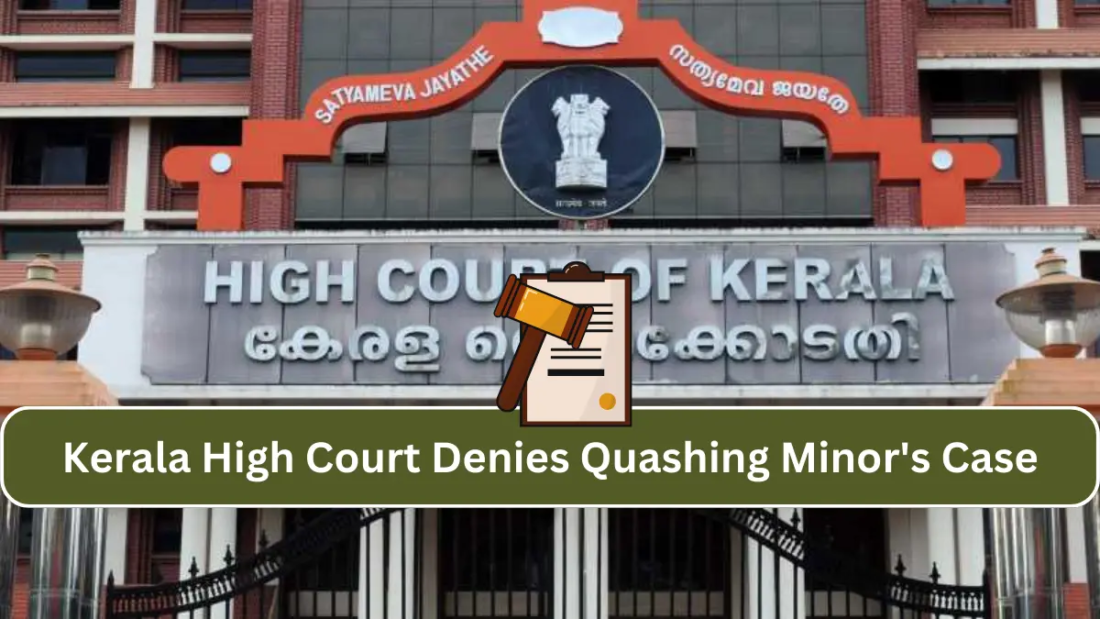Introduction
In X v. The state of Kerala, The Kerala High Court held that anyone can be charged under the Protection of Children from Sexual Offenses Act, 2012 (POCSO Act), regardless of gender or age.
Therefore, it declined to quash ongoing proceedings against a minor. However, the bench made it clear that the minor could only be dealt with in accordance with the Juvenile Justice Act’s provisions and could not be tried in a regular criminal court.
Facts of the case
A petition under Section 482 of the Code of Criminal Procedure, 1973 (Code) was filed on behalf of a 13-year-old, having been accused of offenses punishable under Sections 342 and 377 of the Indian Penal Code, 1860 and under Section 3(c) read with Sections 4, 5(m) read with Section 6 of the Protection of Children from Sexual Offences Act, 2012 (POCSO Act). The petitioner wanted the FIR and further proceedings quashed. The petitioner was accused of subjecting a 5-year-old boy, to penetrative sexual assault.
Contention of the Petitioner
The counsel for the petitioner argued that a child cannot be prosecuted for an offense punishable under the POCSO Act or sexual offense punishable under IPC. The counsel further contended that since the offender is a child, he cannot be attributed with the criminal intent to commit such an offense, and therefore, the investigation against the petitioner is illegal and should be quashed.
Response of the Respondent
The learned Public Prosecutor opposed the plea by arguing that a child is not excluded from the term ‘offender’ under the provisions of the POCSO Act.
Court’s Observation
The POCSO Act defines “penetrative sexual assault” and “sexual assault,” as well as their aggravating forms, in Sections 3, 5, 7, and 9. These definitions, subject to exceptions provided in India Penal Code imply that, anyone can be charged with committing such offenses, regardless of gender or age. The Juvenile Justice (Care and Protection of Children) Act, 2015 (JJ Act) gives a definition of “child,” As per the JJ Act’s Section 2(12), an individual who is younger than 18 years old is considered a child. In addition, a child who is accused or proven to have committed an offense prior to turning eighteen is defined as a “child in conflict with law” under Section 2(13) of the JJ Act.
According to the definitions mentioned above a child may in fact be charged with sexual offenses. But they will not be tried in ordinary criminal court, the JJ Act’s guidelines are followed in such cases. However, this does not stop legal action from being taken against a minor who has broken the POCSO Act, which shields minors from sexual offenses. The argument that a 13-year-old child cannot be prosecuted for sexual assault offenses is baseless in these kinds of situations.
The petitioner’s unfounded fear is that the POCSO Act will treat him like an adult offender. The Juvenile Justice Board is required by the JJ Act to carry out an investigation if the investigating agency files a final report following a comprehensive investigation that shows the petitioner has committed the offense. The child’s best interests will be protected throughout this process, and reform and reintegration into society—rather than conviction—will be the main objectives. As a result, the petitioner’s request to suppress the FIR and stop the legal action cannot be granted.
Court’s Decision
The court dismissed the petition and held that a person of any age can be accused of offenses under the POCSO Act. The court further directed that the investigative agency must complete the investigation within 2 months and should not harass the petitioner in the guise of investigation.
– By Anaida Khan Pursuing 4th year of BALLB (Hons.) from Dharmashashtra National Law University, Jabalpur
 Cart is empty
Cart is empty 

